How Much Does Sacha Baron Sacrifice In The Name Of Exposing Prejudice?
An in-depth discussion on the comedy and satire of Sacha Baron Cohen
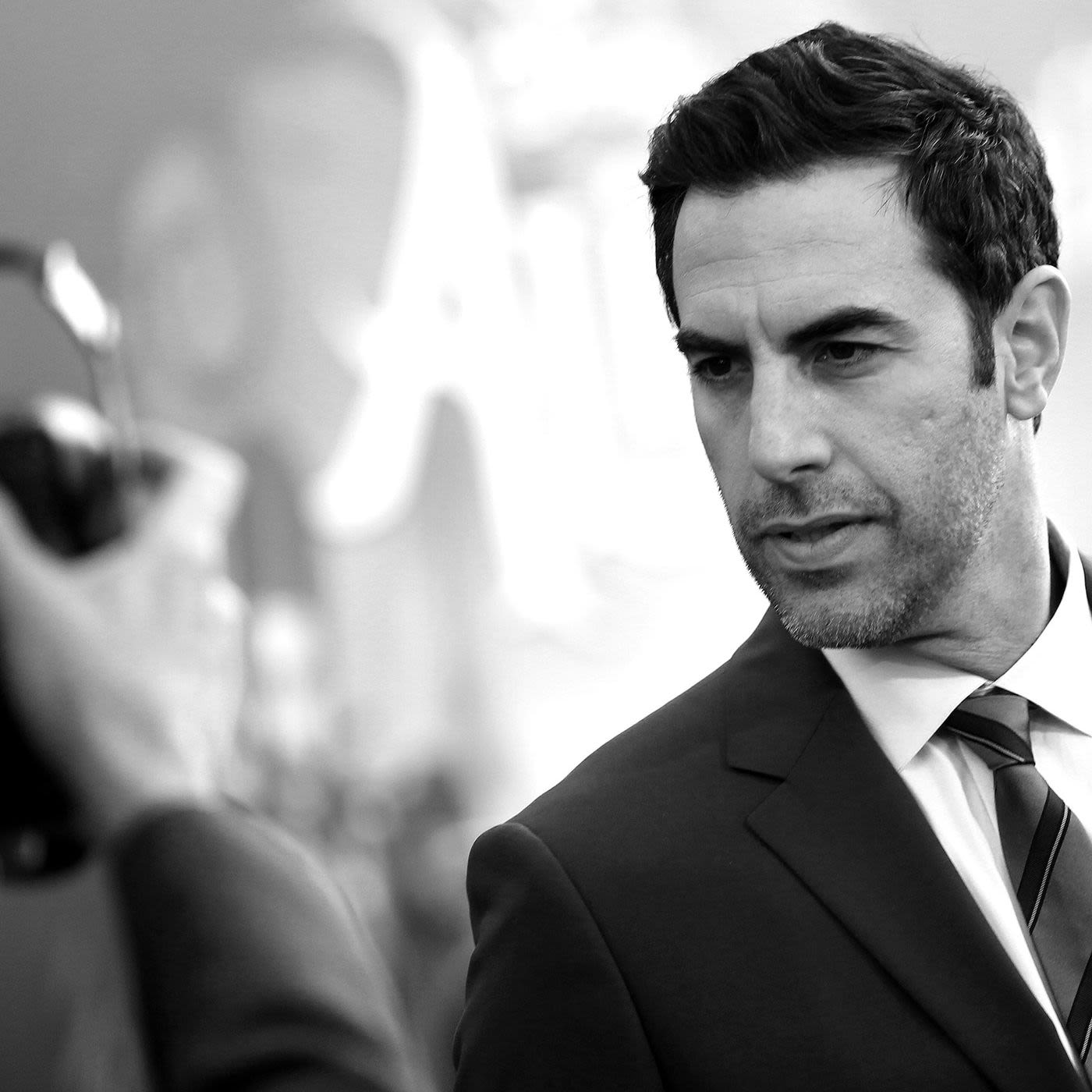
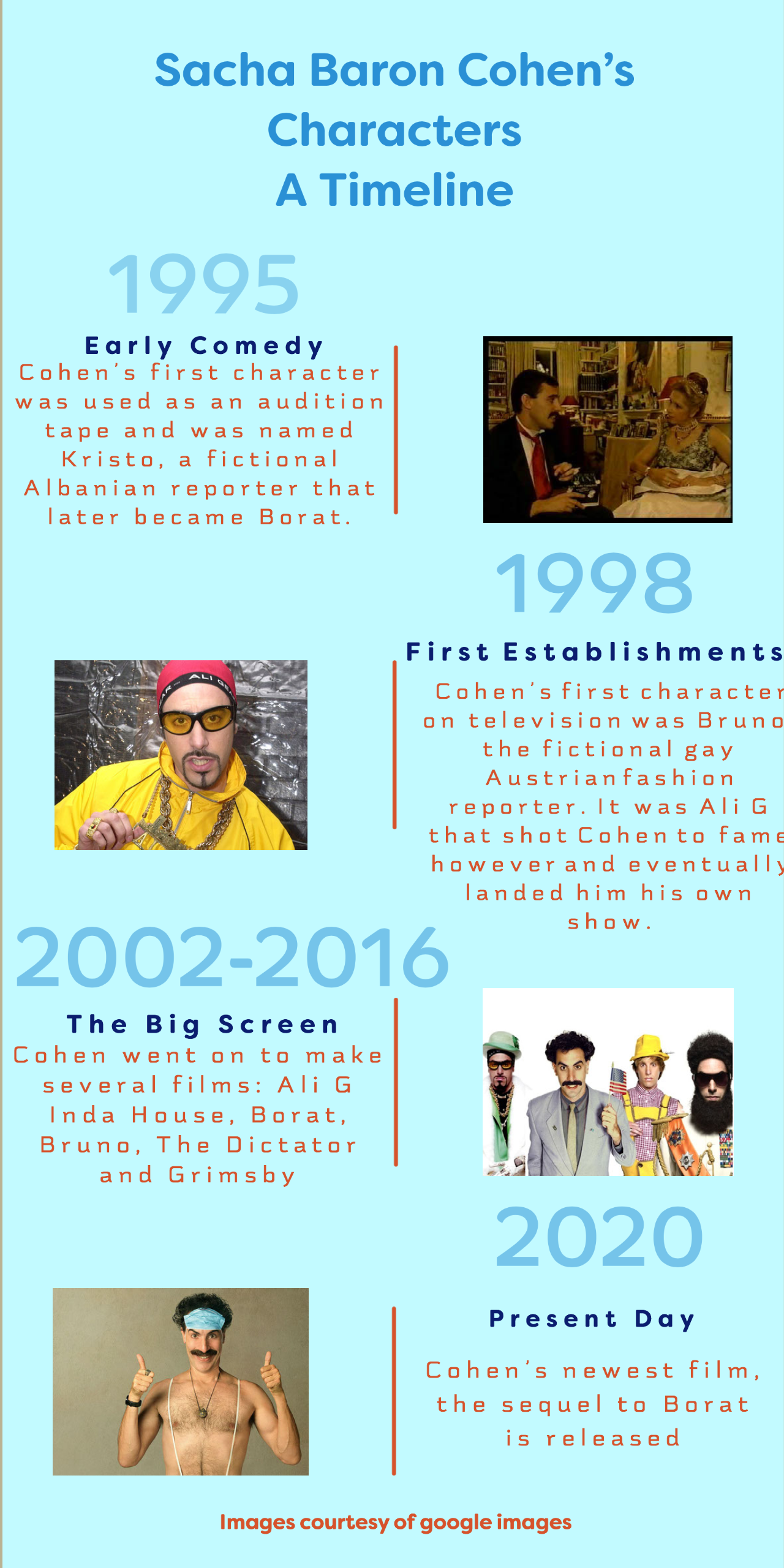
An Introduction
Last year Sacha Baron Cohen was awarded the International Leadership Award by the Anti-Defamation League. This award, which is described by the ADL as being awarded to: “exceptional individuals who combine professional success with a profound personal commitment to community involvement and to crossing borders and barriers with a message of diversity and equal opportunity”.
This prestigious award is one that demonstrates a commitment to acting against the prejudice and hatred that can often be seen within our society. An award as such is reserved for someone well established within the community that acts against such downfalls within our society, so why is it that Cohen is viewed by some as wholly unworthy of such an award? The Independent recently raised the question: “If the racism and sexism can no longer even justify itself as a means to an end to expose some greater truth… isn’t it just racism and sexism plain and simple?”
Has Cohen reached the absolute extent of satire? At what point does the line between satire and simply mocking a demographic become breached? “At times some critics have said my comedy risks reinforcing old stereotypes”.
Cohen is actively aware of the criticism that surrounds his work and still continues to produce similar content. This article will take a look at Cohen’s comedy and expose whether the satire he represents is effective at exposing prejudice and hate, or simply just a poor attempt at mocking a demographic for a few cheap laughs.
Satire is “a way of criticizing people or ideas in a humorous way, especially in order to make a political point”.
Criticising people and ideas are something that Cohen’s myriad of characters does quite effectively, something which his entire comedy is centred around. The debate lies within the sacrifice of the deprecation of the backgrounds Cohen imitates in order to expose prejudice. Though it is undeniable that Cohen exposes negative attitudes and mentalities, what is the cost?
It is night time at a country music club in Tucson, Arizona, a state in the South West of the USA. The bar is relatively full, and the atmosphere is that of a casual night, people drinking and conversing. An open mic night is in session and a peculiar character has come by to partake. An alleged Kazakh reporter, preparing to sing his song ‘In My Country There Is Problem’. Complaining of the lack of effective transport within Kazakhstan the patrons begin to join along in the song. Coming into the second verse, the complaints of travel is replaced by complaints of Jewish people. The song comes to a heed with the chorus echoing out “throw the Jew down the well”, to which the entire club sings along.
This is of course Borat Sagdiyev, the Kazakh news reporter. Or better known to the clued-up individual as Sacha Baron Cohen. The displayed outburst of anti-Semitism doesn’t instil rage or uproar within the patrons. They join along as if it was nothing at all. Cohen managed to display the carelessness and casual attitude towards anti-Semitism within the South of the US.
A writer for the New York Times wrote: “any hint of actually questioning the cultural suppositions of his ticket-buyers… would fatally mar the self-congratulatory aura of the enterprise… Cohen also knows how to rig an unfair fight, and to then ring maximum humiliation and humour out of each situation”.
Although one can assume that Cohen’s work effectively raises questions on social attitudes that are often masked or hidden, this article insists that what Cohen does never reflects the attitudes too close to home for the audience, it is always a debacle to look down on those people, point the finger and laugh. It is easy for someone in a position of the ‘normal’ society to laugh a group of backwaters rednecks being anti-Semitic. This raises the point that Cohen is often times selective of who he will target with his comedy, as the mass demographic that any content will cater for would prefer to watch the easy targets fall victim.
In argument to this, regardless of what societal group is being targeted by the characters of Cohen, what the eventual outcome exposes is not something that should be accepted within society whatsoever, no matter who is falling prey to Cohen’s characters. Attitudes of anti-Semitism are not acceptable, and here by portraying anti-Semitism, Cohen exposed the potential for nonchalant attitudes within Southern USA. Though Cohen may be selective of who he targets, he still effectively accomplishes what he intended to do. The real issue that is faced within the anti-Semitic behaviour of Borat is one that was drawn by the ADL at the time, the same organisation that awarded Cohen in 2019. “The organization deemed it unfortunate that Borat is identified with an actual nation… Their real anxiety is that by satirizing anti-Semitism, Borat will legitimize it”, remarked a writer for the Village Voice in 2006.
The effect of the irony and satire that comes with Cohen’s comedy may be lost on certain members of the public. Instead of using comedy as a bridge to enlighten or educate people on prejudice, this method of comedy could simply just be reinforcing it. Would it be reasonable to assume that the people within that bar, upon discovering the actuality of the prank felt obliged to amend their ways or make a change? In reality, the only thing that this would do to a subject would be to instil further repulse at the fact that they got duped. Is it reasonable to expose a sect of people for the betterment of society as a whole or will this simply just create an even more drastic divide between the two? “Satire makes use of certain devices - stereotyping being one of them - but that should be a starting point, rather than an end point of investigation”, as said by a writer for the Guardian in 2006.
Instead of just driving the point across that a certain group is susceptible to prejudice and racist tendencies Cohen could further the conversation. Cohen’s comedy is like pulling the pin on a grenade and running away. What Borat does is incite the acts that allow the façade to be dropped and then moves on. One could say that by not attempting reparation or the betterment of attitudes to the subjects of his comedy, then he is simply exacerbating the damage by humiliating and drawing further divide.
To gain some insight from a relevant perspective we reached out to Matt Reed, a stand-up comedian from Newcastle to discuss the comedy of Sacha Baron Cohen. The video interview can be seen here.
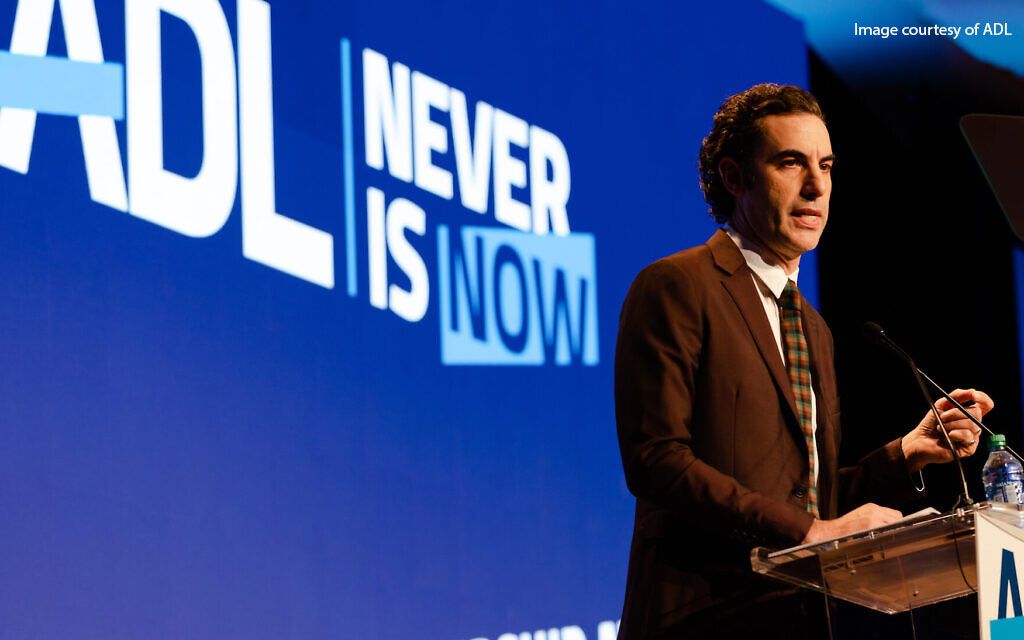
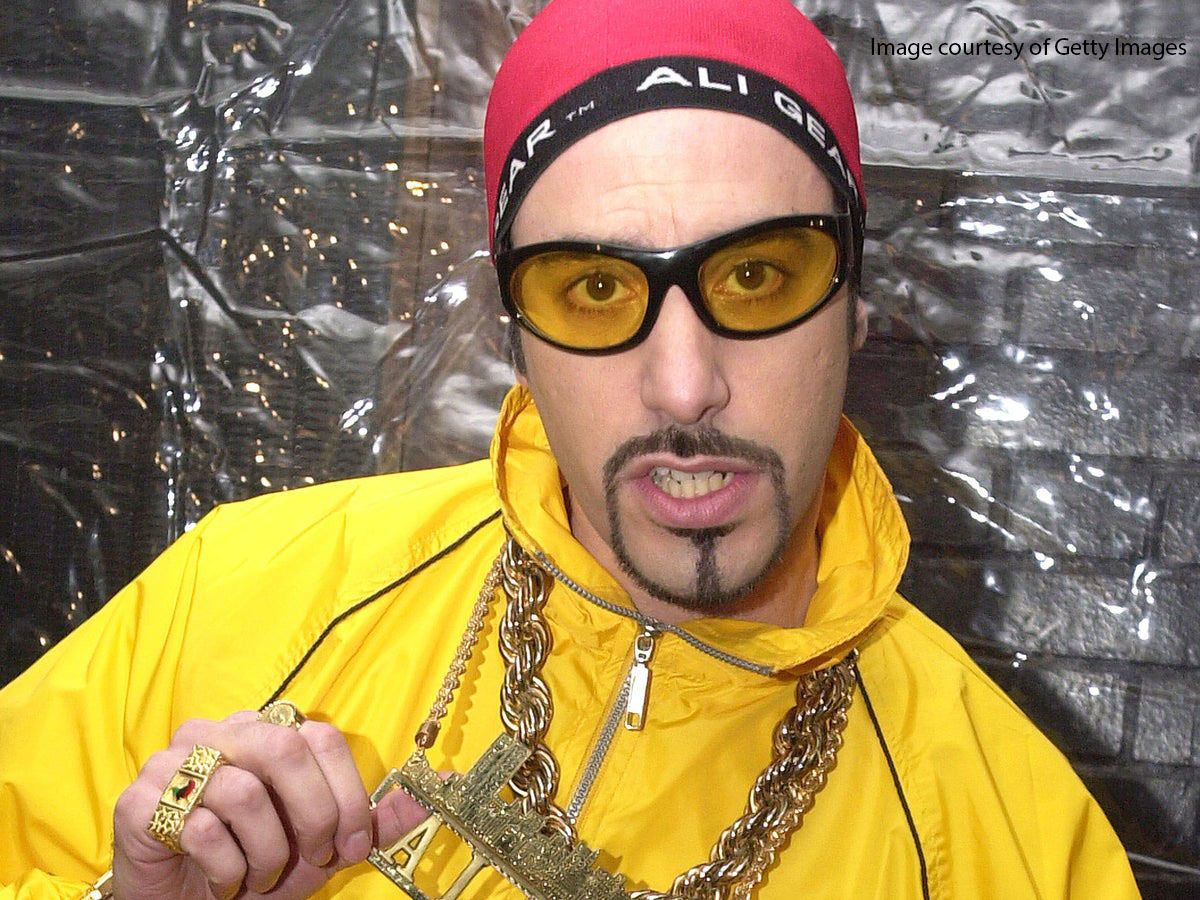
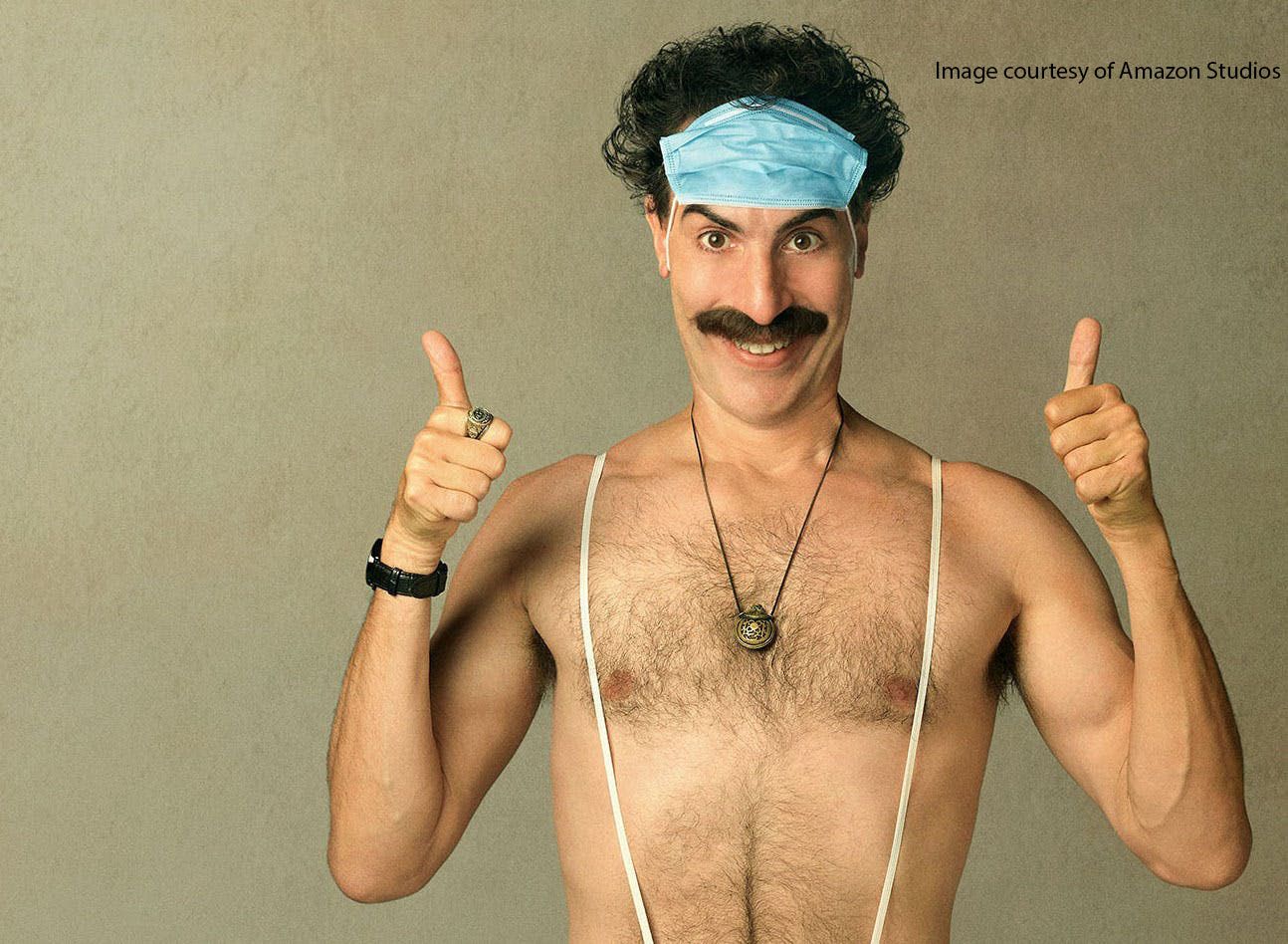
When discussing the aforementioned quote regarding if satirising will legitimise, Matt said: “If you take offense to something that is advertised as a joke… if you can see the humour in it and what he’s trying to do then it doesn’t legitimise anything at all.”
When asked about whether the issue was within the content that Cohen produces, or the sensitivity of the public Matt said that this was completely an issue with the sensitivity of the public.
“Yeah I do, and I know people might take issue with that and say, ‘well what’s he doing it for if it’s going to offend?’, he tends to have a point.”
This viewpoint suggests that by being advertised as an outright joke, the potential offensive nature of the satire that Cohen stands for is mitigated. The responsibility here lies with the over-sensitivity of those watching Cohen’s content and taking offense. If something is marketed as humorous and a joke, then it should be taken for that and not at face value. However, this can be seen as quite a rigid and somewhat obtuse way of looking at it. To get some further clarity we reached out to a politics student, Jade Stobbs, hoping to discover the perspective from someone that is primarily politically minded. This interview can be seen here.
When asked about the same quote about satirisng legitimising, Jade responded: “If someone doesn’t look into it then they’ll just see similarities from day to day life within the movie and it could just reaffirm them… they might not think ‘well that is out of order’.”
What Jade suggests here is that by displaying these offensive stereotypes and behaviours that some people may end up taking the behaviour as reasonable and start to enact it within everyday life. The dispute that arises here is whether Cohen is accountable for engaging this type of behaviour.
Some would argue that Cohen simply does perpetuate these stereotypes and prejudices. An interview with Eonline regarding the film The Dictator, which saw Cohen playing the part of the prince of a North African country, Nadia Tonova, thedirector of the National Network for Arab American Communities said the following statement: “it really seems to be that it's perpetuating a negative stereotype against Arabs and therefore Arab Americans," Tonova tells E! News. "And I feel it's harmful to the discourse, especially these days when we are seeing the number of profiling incidents here in the U.S. against Arab Americans.”
Should the characters of Cohen be taken as a perpetuation of racial profiling and discrimination or simply just for the humorous pieces they clearly intend to be?
To form some sort of clarity on this we created a short survey that was answered by a random group of people, the answers of which you can see below.
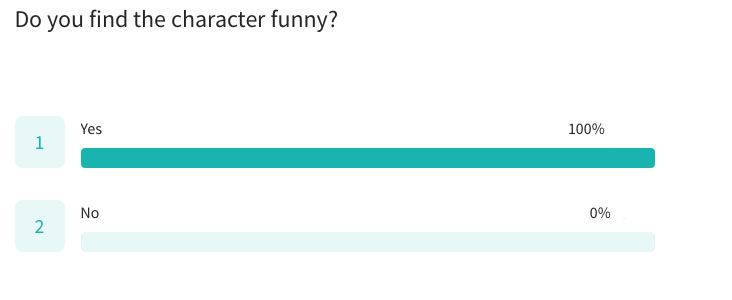
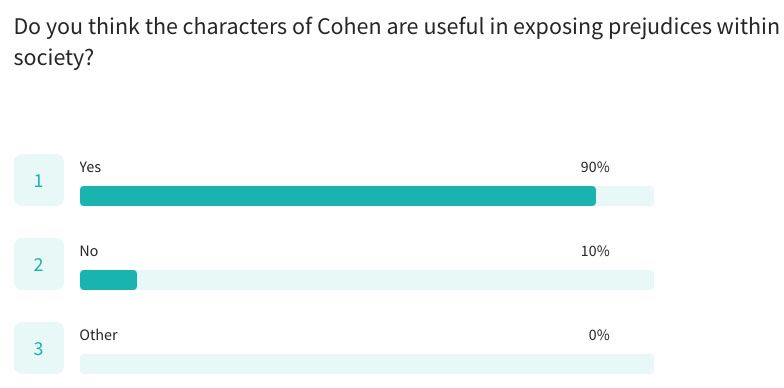
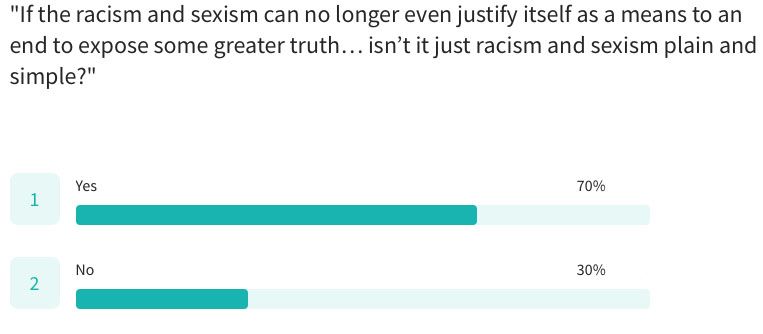
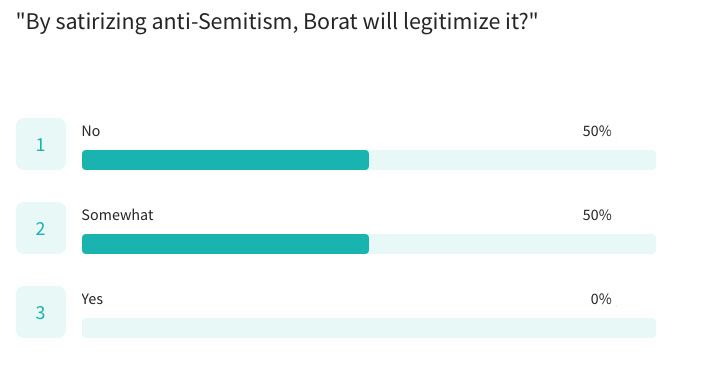
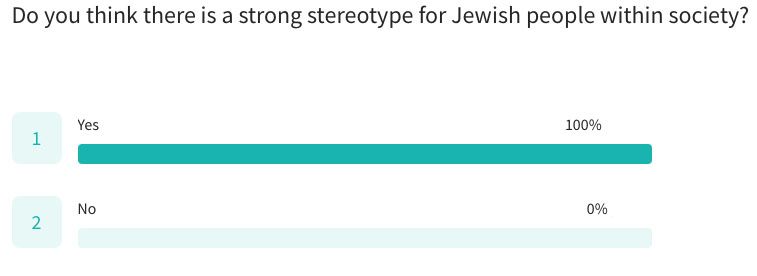
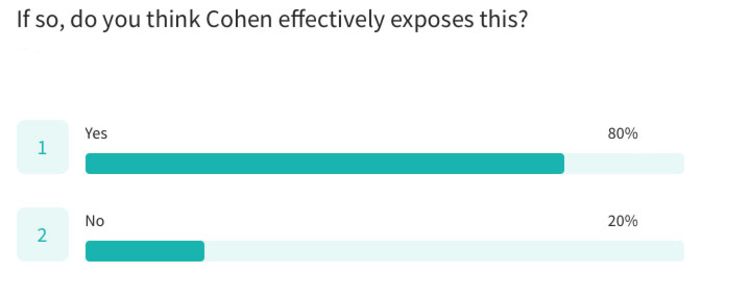
Looking at the results we can deem that generally, people regard Borat to be funny, that the characters of Cohen do successfully expose prejudice, that there is a strong stereotype for Jewish people within society, and Cohen effectively exposes this.
These results show evidence that the public generally considers the characters of Cohen to be humorous. This reinforces Matt’s point about taking offence to something that is advertised as a joke. As a general public, we are aware that the characters presented by Cohen are intended to be perceived as humorous. To think that there is a public consensus where people are not aware that these characters are intended for comedic effect is outright wrong. However, there is certainly still the chance that occasionally these small jokes and jests can pave the way for further transgressions.
As Jade says within the interview: “From a political stance, anti-Semitism is very rife within the world to the point where we don’t notice how anti-Semitic the majority of people are… the micro-aggressions towards them is constant.”
What this means is that even though consumption of such media as Cohen’s work should never be condemned for its existence, we should remind ourselves to stay mindful and in touch with the small aspects that snowball into flat out discrimination. The characters of Cohen can be seen from two different viewpoints: providing education on how to stay mindful of these ‘micro-aggressions’ and using it to educate society or just encouraging and embedding these tendencies. Instead of putting this responsibility upon Cohen, who clearly does not create this content with harmful intent, who still bears a point even though this can often times be lost, the responsibility should be on the general consumers to not misinterpret and to use this accessible platform to bolster positive thinking in regards to overcoming prejudice.
The Flip Side
Jamali Maddix is a British comedian who’s work consists of interviewing neo-Nazis and racially discriminatory people and presenting it as a form of stand-up / informative speech, presented in the television show ‘Hate Thy Neighbour’. Maddix’s work draws somewhat of a parallel to Cohen’s, in that the intent is to expose or open the public’s eye to discrimination within contemporary society. The juxtaposition between the two comes at the fact that Maddix never uses a façade to fool the subjects featured within his content. Maddix never sets out to unwittingly fool someone into believing they are part of something they are not, though certain points in ‘Hate Thy Neighbour’ are humorous, the whole show itself plays out as a more journalistic, informative affair.
In this interview, Maddix converses with an EDL member, who shows his blatant lack of shame when expressing his views: “I’m bad, I’m this, I’m that. You’re a n***** yeah.”
This demonstrates the backwards mentality and outright racism of people in a scenario that doesn’t stack the odds against the subject. Instead of fooling someone into a false sense of security and using this to beckon out racist tendencies, Maddix displays people who have no ashamedness of their views. The powerful capabilities of this mean that it becomes more poignant, more eye-opening. Rather than pointing a finger and laughing as much of Cohen’s work does, Maddix shows the lack of care that some people have in regard to expressing their racially-charged opinions.
One could say that this displays a different kind of racism that Cohen is tackling. Instead of the fooling of politicians and rednecks, Maddix is casting the spotlight on a different hatred, an engrained one within our society. Instead of being a jester for everyone to laugh at there is just unabashed hatred and discrimination on display. This is a result of the ‘micro-aggressions’ Jade mentioned previously. This different type of discrimination is a result of the lack of care that society has for exposing something close to home. The odd comment, the family stories passed down, and so forth. These small and often disregarded actions amount to more and more discrimination and products of such.
In an interview with the BBC, four young black men spoke on their experiences with racism in the UK.
“The best way I can put it is I feel like an alien”
“They call me the n-word behind closed doors”
There is no debate whether racism is still prevalent within the UK, you never have to look far to see it. This interview shows just some of the, now commonplace, attitudes that people of different racial backgrounds have to deal with within the UK. With the recent surge in Black Lives Matter protests, came a kickback from supporters of such organisations such as EDL, attempting to deny these people the right to express their voice on issues within the world. Many of these protests resulted in violence, almost always from the right-wing supporters. This is the discrimination that is sifted over by the general public. Pushed aside as just another problem to forget about. What Maddix is doing is tackling these issues by showing how unashamed these people are to display their discriminatory views. Though this is without doubt more shocking than Cohen’s work, the intentions are definitely not intertwined. Where Maddix shows the truth in our British society in a way that educates and could never be misconstrued as reaffirming this behaviour, Cohen’s work turns to one of absolute comedy with a point to it somewhere in the background. This differentiation could also be accredited to the media platforms that both are presented on. Maddix’s show is run on the channel VICELAND, a journalistic channel intended for consumption by a younger demographic. As a television show, Maddix is not necessarily catering to drawing in crowds. What Maddix is doing, he is doing because it demonstrates something close to home. Cohen must market what he does as something that will interest a very broad sect of the public, because when is all said and done, he must market his creation as a profitable entity, something that will go on to make money at the box office. This feeds into the fact that Cohen tends to be selective on the subjects that fall victim to his comedy, as he is always considerate of what the general population will take interest in; it is never going to be something as close to home as some of the subjects of Maddix’s work because this is a much more sensitive topic than preying on politicians and rednecks.

Image courtesy of jamalimaddix.com
Image courtesy of jamalimaddix.com
A Pitfall
Regardless of the corrupt oligarchs and politicians Cohen frequently victimises, there is an often times forgotten party that is left in the wake of his humorous affairs. These are the unwitting people that are at times used by Cohen for comedic effect. Case in point is the Kazakh hometown of Borat, whose inhabitants were never aware of the inside joke they fell victim to.
The town of Glod is actually a small village in Romania, not the country of Kazakhstan like Borat would leave the audience to believe. The villagers were all paid small amounts of money to feature in the film but were never told exactly how they would be being portrayed as rapists, abortionists and so forth. By all accounts, Glod is a poor town, thus it was inevitable that the townspeople would be more than obliging to partake. This displays the manipulation that Cohen can sometimes execute. The pranks played on disagreeable members of society can be played off as having a redeemable point to them but it’s hard to justify the use of an unwitting and innocent party. An article for the BBC said the following:
Though Borat is a fictional representation of a Kazakh man, this was never intended for consumption from an Eastern and even Kazakh audience. The audience was intended for Western eyes from the outset and thus often times Kazakhstan appears as the butt of the joke. When exposing the discrimination within society, it is always in a Western setting, but to get there Cohen neglects a duty of care to the shoulders he clambers over to get there. This is not a matter of sensitivity; it is a matter of ethicality. Surely, it is not ethical to utilise the unwitting nature of the Romanian people within the film to gain a comedic reaction from a Western audience. This creates a further divide from Western and Eastern audiences and could even contribute to an overlooking of the maintenance of thoughtfulness of cultures outside of the West.

A Summary
It is undoubtable that Cohen is not coming from a hateful place when committing to his satire: “if we prioritize truth over lies, tolerance over prejudice… we can still have a place for free speech and free expression, and, most importantly, my jokes will still work”.
The fact of the matter is that Cohen never initially sets out to oppose or belittle a minority or group of vulnerable people. The truth is that Cohen strives towards a goal of justice, one of ethicality. As Matt said within the interview: “Comedy is one of the last bastions of free speech”
To condemn Cohen for using comedy as a platform would be to negatively impact his work towards exposing prejudice. Matt said that comedy “is genuinely a way you can speak to an awful lot of people on every level.”
Comedy is such an accessible way of rallying truth onto people. When all is said and done, Cohen is utilising tools to broaden the perspective of a massive demographic of the public.
Although Cohen is, along the way, creating potentially offensive content, there is no dispute that this all done with humorous and so forth educational intention. With every action comes a reaction, and with comedy it is entirely subjective. What may offend one person may have the other doubled over. Looking at the survey results it is evident that almost entirely everyone views the comedy of Cohen to be humorous. If society can see the humorous intent behind what Cohen is doing, then this undermines any inclination that he does it with ill-intent.
Without a doubt there are pitfalls in Cohen’s work. By disregarding parties such as the town used in Borat, one could say that a divide is being amounted to. However, to say that by acting out scenarios as his characters, with all of their not-so-politically-correct tendencies, legitimises prejudice and hatred is plainly wrong. Though from the mind of someone politically minded such as Jade, this behaviour being displayed for a mass demographic to see could result in an engrained set of sensibilities within some viewers, this can be debunked by the fact that it is evident the public see the humorous intent behind all of Cohen’s work.
The Anti-Defamation League themselves awarding Cohen the International Leadership Award to Cohen last year shows that even them, as a Jewish organisation, are aware of the intent that Cohen stands for. Though it can be suggested that the impact of Cohen’s work is not very visible, surely the responsibility lies on us as a society to further the progress. Looping back to the point made by the Guardian that satire “should be a start point rather than an end point of investigation”, the reality is that Cohen uses his comedy as the starting point, for us to then further the investigation as the audience.
It is up to us, the audience, to work with the information Cohen puts to us. To condemn Cohen’s comedy is to disregard the intentions of his work. Cohen grows increasingly successful with every iteration of his satire, but all the while paying heed to the issues that spawned his work in the first place. What Cohen spreads is a message of diversity and equality, as stated by the ADL regarding the International Leadership Award.
Comedy can make us laugh, but it can also make us think. It is a medium that appeals to everyone. This is why it can be a vehicle used for positive action. The discrimination, prejudice and hatred that Cohen manages to expose is that of which is untouched upon by central media outlets. Instead of casting doubt on Cohen’s work, society should commend him for exposing things which would otherwise be left not broadcasted. How many people can you say got Trump’s lawyer in a compromising position within a bedroom or started a riot at a cage match over two men kissing?
Yes, some parts of Cohen’s work are flawed. But there is utmost redemption within the truths he exposes. At their core, Cohen’s works are fun works of comedy, but in their wake his true genius is uncovered; they become much more than this.
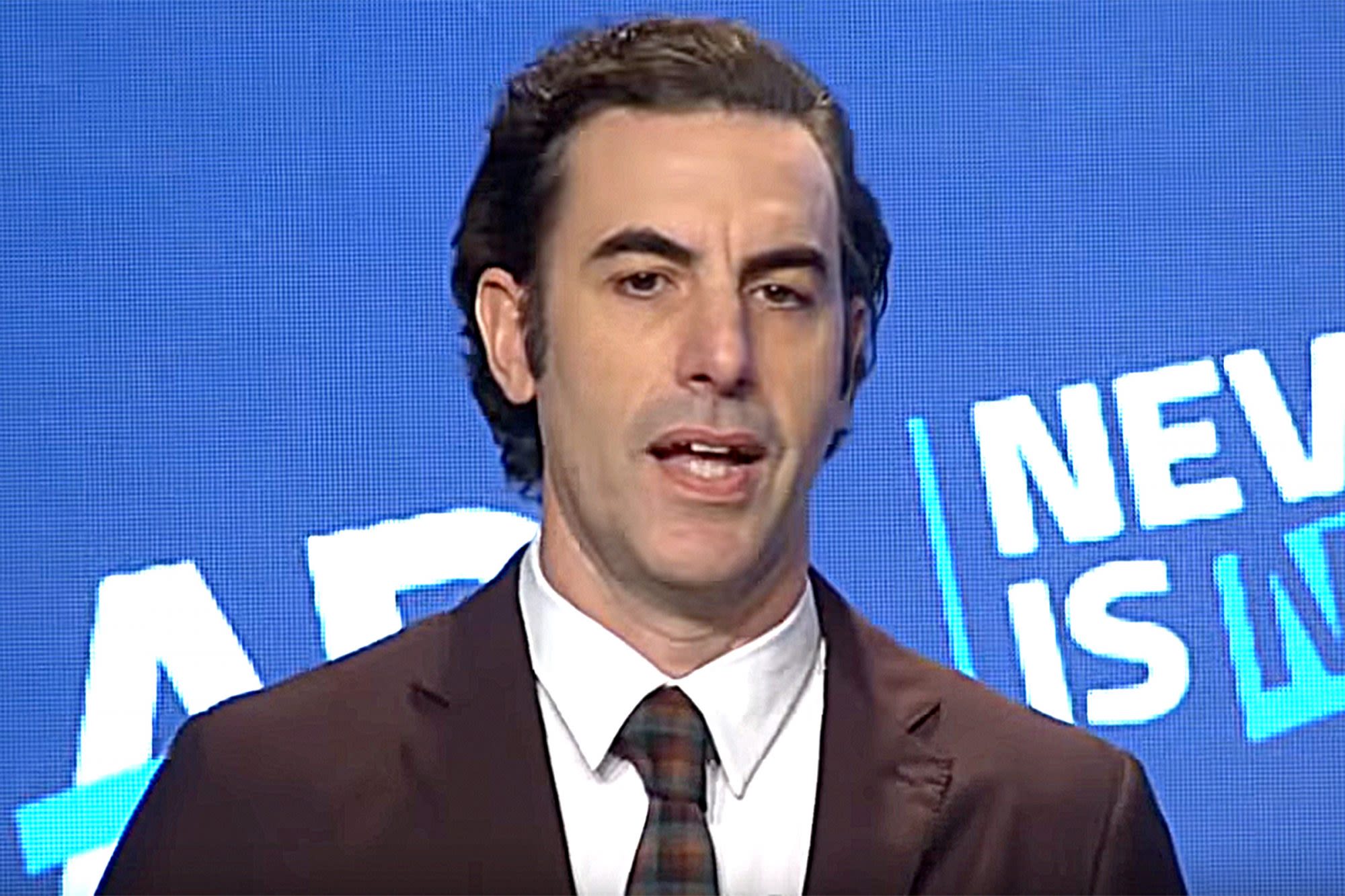
Image courtesy of ADL
Image courtesy of ADL